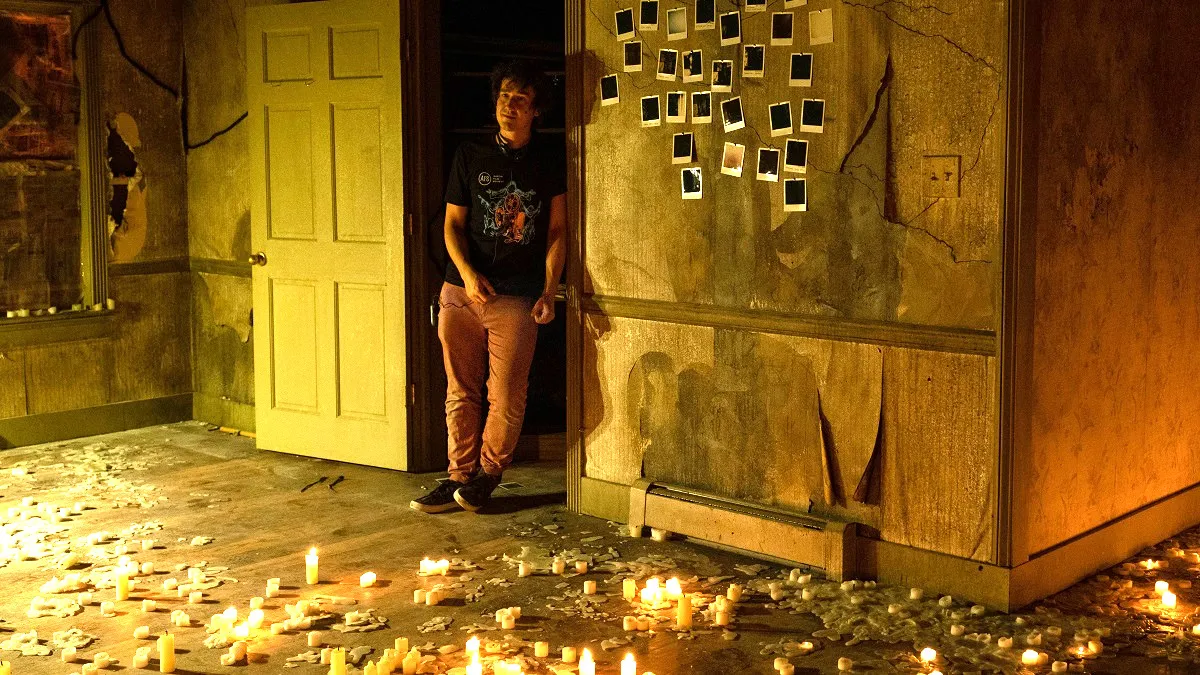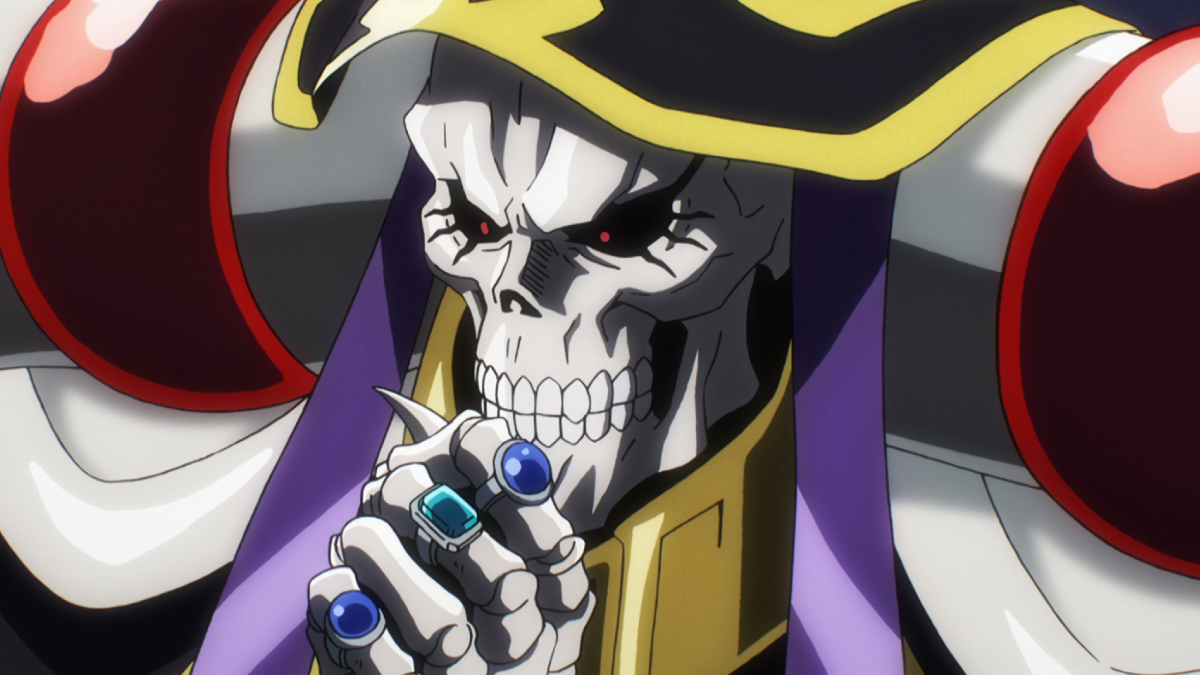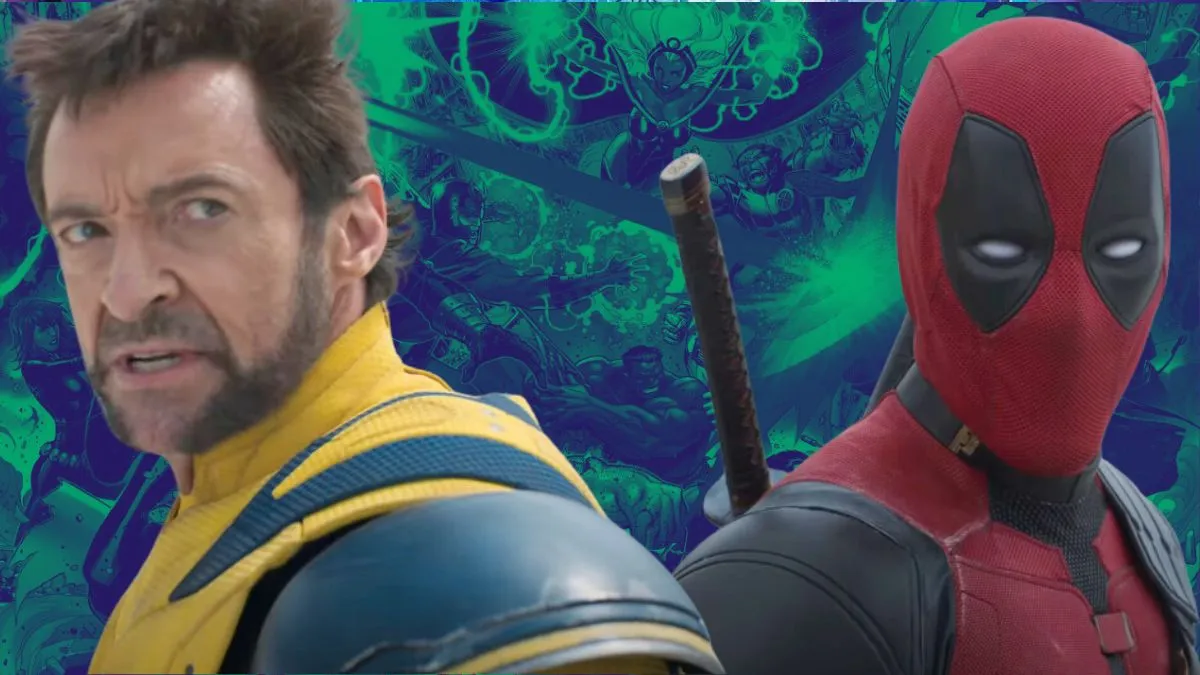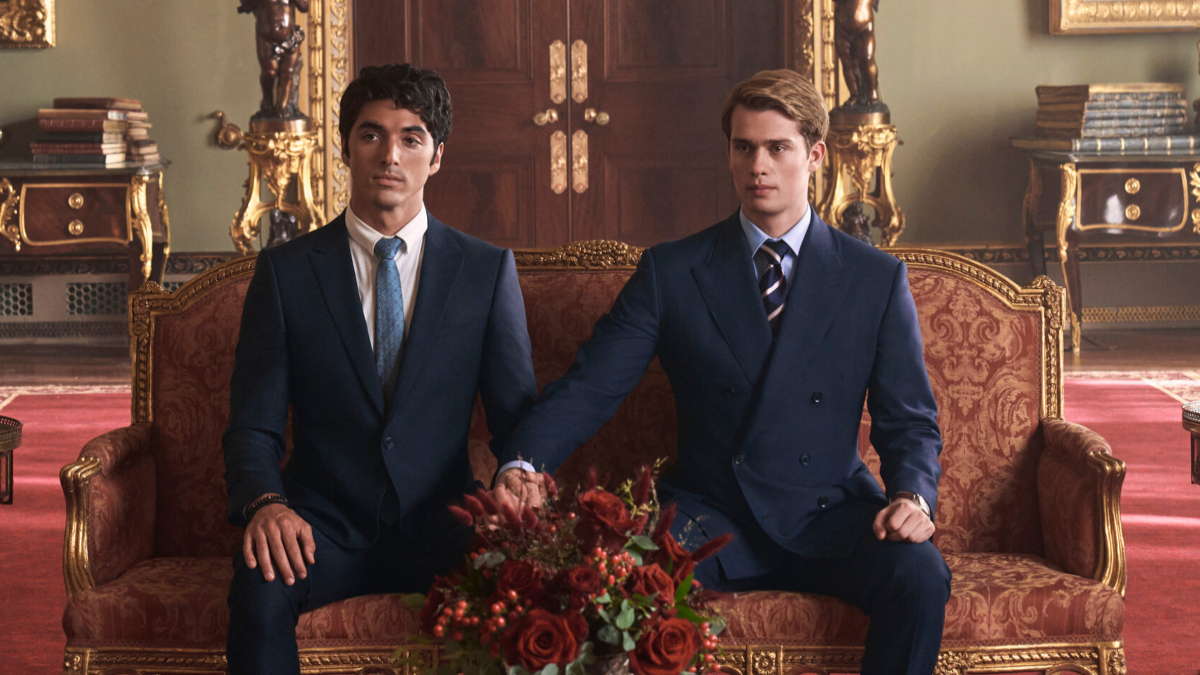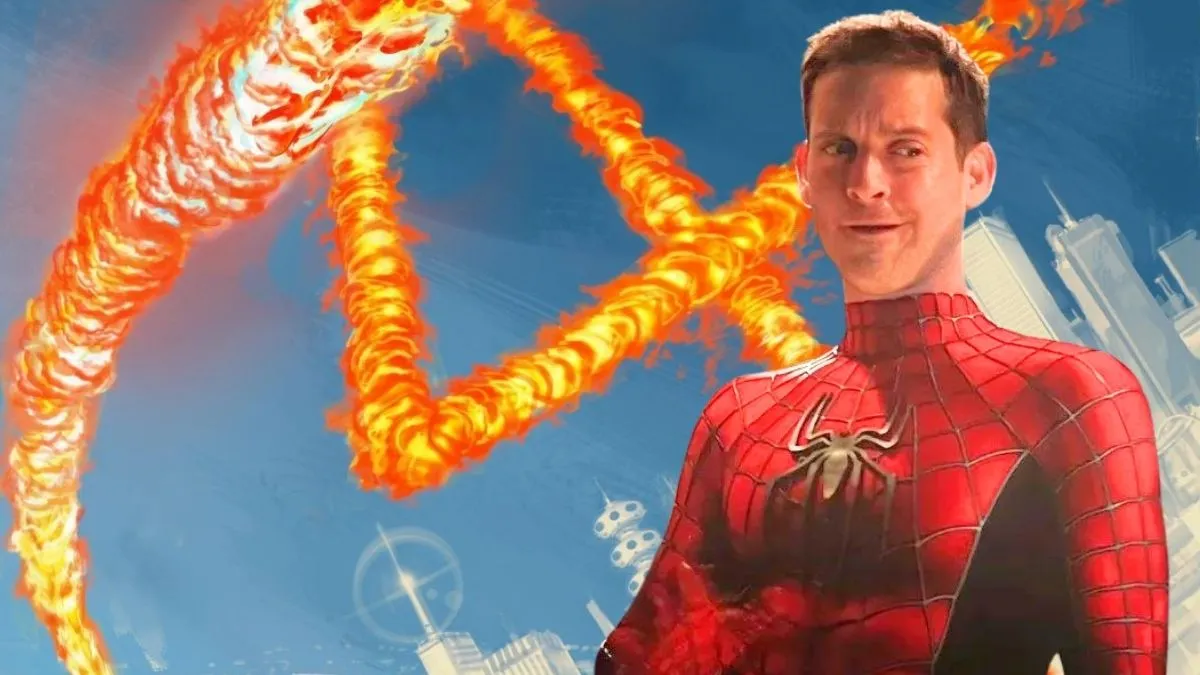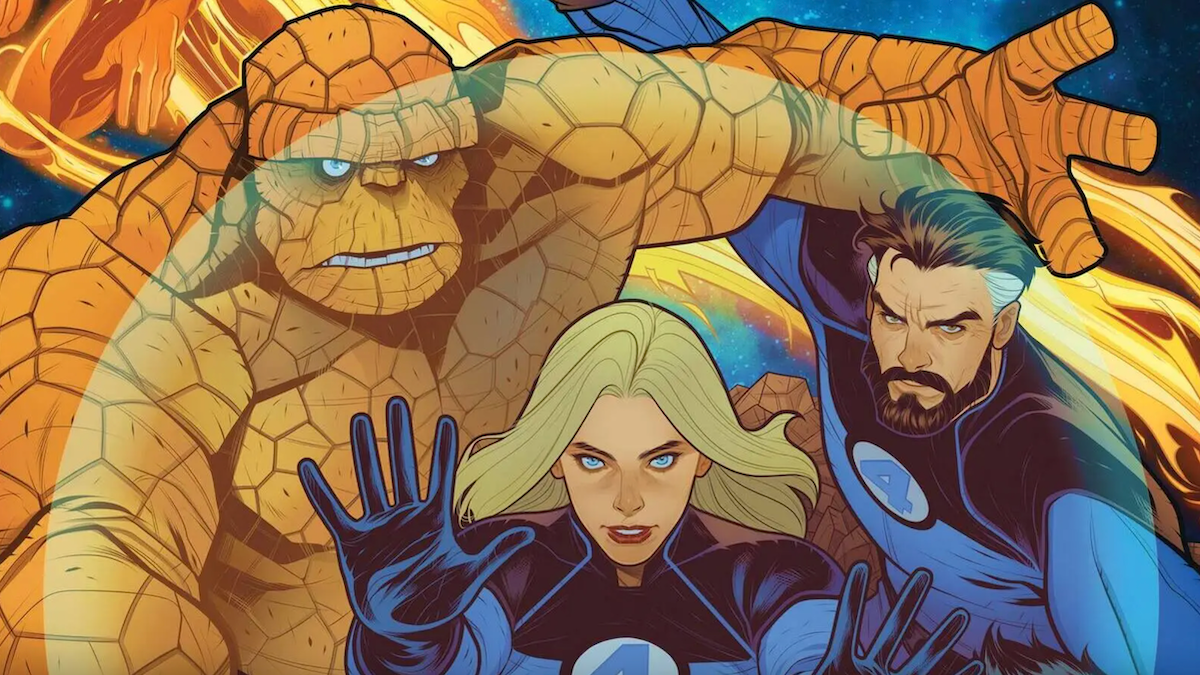Having broken through in a major way with Host – deemed by no less of an authority than science as the scariest movie ever made – and then followed it up with spiritual successor DASCAM, rising horror star Rob Savage has taken the next step in his directorial career by tackling Stephen King and The Boogeyman.
Inspired by the short story of the same name, the supernatural chiller finds Sophie Thatcher’s Sadie Harper and Vivien Lyra Blair’s Harper dealing with the death of their mother, only to face an altogether different kind of nightmare when they discover a terrifying creature that preys on suffering has made them its new target.
Originally scheduled for Hulu, The Boogeyman fared so well among test audiences – and secured the seal of approval from King himself – that it was upgraded to a theatrical release, where it scored a stellar opening weekend in the face of some seriously stiff competition.
With The Boogeyman now playing in multiplexes all over the world, We Got This Covered had the chance to speak to Savage about his latest feature. During our deep dive conversation we cover the pressures of bringing King to the big screen, the perfect way for crafting a jump scare, his choice for the greatest living director, the indisputable greatness of Jurassic Park and much more, which you can check out below.
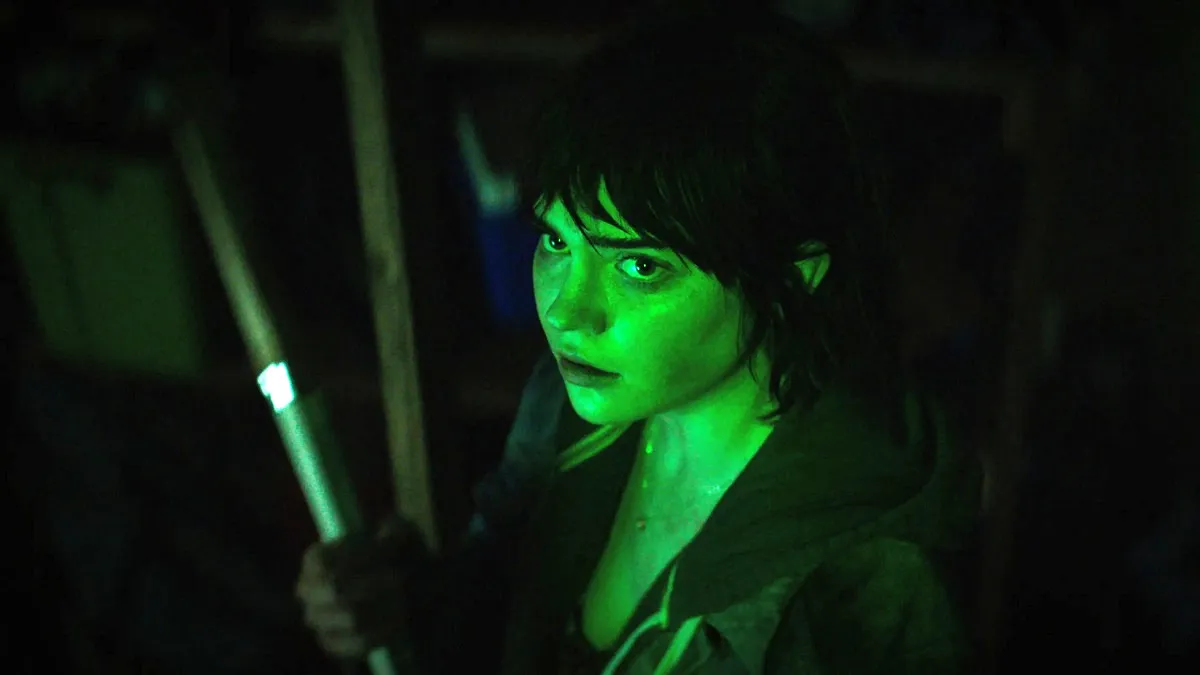
First off, congratulations on the opening weekend, which makes me wonder what you would have said a few years ago if somebody told you that you’d direct a movie sandwiched right in between Spider-Man, The Little Mermaid, the Marvel Cinematic Universe, and Fast & Furious at the box office?
Rob Savage: I think I’d probably pass out if somebody told me that! Yeah, it’s weird. You gotta keep checking in on yourself with stuff like this because it’s… You know, I think the thing that would have blown my mind the most is to be doing a Stephen King movie. I didn’t even dare to dream that, but that would have been my dream when I started out making horror movies when I was a kid.
It’s a badge of honor; you’ve got four multi-billion dollar franchises, and then The Boogeyman right in the middle fighting the good fight for horror.
Rob Savage: Yeah, it’s not too bad. I mean, we were up against some juggernauts. And I think we did decent.
Speaking of the man himself; Stephen King doesn’t care for The Shining, but he’s gone on record several times with his glowing endorsement of The Boogeyman. Do seals of approval come much bigger and better than that?
Rob Savage: No! And to be honest, like, that’s the thing that’s made me impervious to any other criticism of this movie. King has been so supportive from the very beginning, he read and fed back on the script, and he loved that. And then, even during production he was he was doing interviews for his book, and he was talking about how excited he was about The Boogeyman, and how much he loved the script. And Showing him the movie was kind of the final, that kind of closed out the whole process for me. Everything else on top of that, it’s just a bonus.
You can barely turn around these days without bumping into a Stephen King adaptation, and there’s a lot of them he doesn’t seem to comment on at all, so it must have been heartening to find out that he was a big fan of what you’d put together?
Rob Savage: Yeah, I think, you know, there’s there’s been a lot of Stephen King adaptations, both good and bad. And I think we wanted to make sure that everyone went in with the ambition of this being a Stephen King adaptation that could stand shoulder-to-shoulder with the best of them.
And this one’s a bit different, because so much of this is our invention. It’s kind of built out from the themes and ideas of the short story, but it’s not a straight adaptation in the same way that a lot of those are. So in some respects, there was a lot of freedom to that, because we were creating our own mythology, and our own world, and our own characters.
But then it was it about always checking back and making sure that what we were building out felt like it belonged in the King universe, like it was true to what King was talking about in the short story, in the themes that he was discussing. And just that it felt like you could sandwich this between, you know, It and and Shawshank Redemption, and you’d feel that same kind of pulse of King underneath it all. But it definitely stands out.
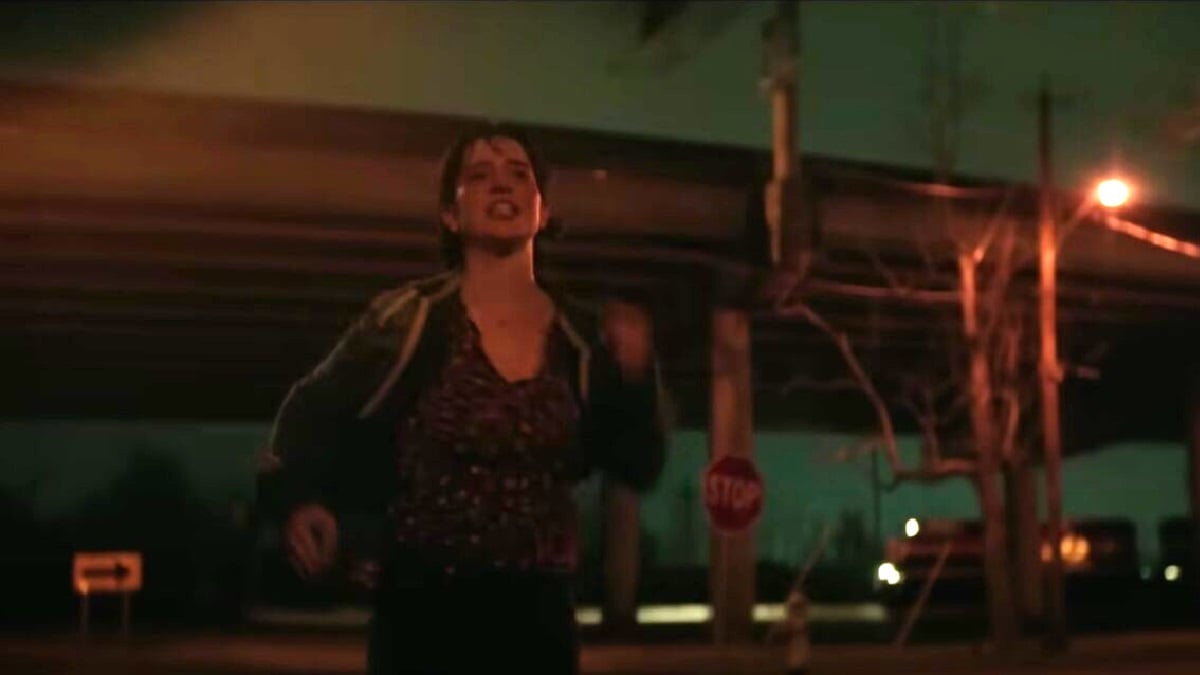
It’s the best-reviewed Stephen King adaptation [on Rotten Tomatoes] that isn’t a remake or a sequel since 2007, so everyone’s obviously taken to it in a major way.
Rob Savage: It’s one that plays great with an audience. I mean, that’s been one of the most surreal parts of this experience, is just like on opening weekend I was able to duck into a couple of cinemas and watch bits of the film. And the crowds love this movie; every scare and laugh, you can just tell that they’re with the characters on this journey.
Which is great, because that’s what we made this movie for. And that was always in my head, even when this was a streaming/Hulu movie. You still imagined 300 people sitting in a dark room reacting to it, and reacting big.
Not to call anybody snobs…
Rob Savage: We’ll call them snobs!
Some horror fans seem to roll their eyes and have some kind of stigma against PG-13 horror, but The Boogeyman doesn’t feel as if it’s been watered down or had its edges softened in the slightest. Obviously, great horror isn’t obligated to be R-rated, but did you relish the challenge of trying to make the scariest possible version of the story knowing where the line would be drawn from the start?
Rob Savage: Well, the thing is, I didn’t know where the line was! I thought when we were developing the script, I thought it was an R-rated movie. And we’d had discussions, but we hadn’t really come down on one way or the other. And so it only like two weeks out from shooting the movie when I found out, “Oh, no, it’s definitively got to be a PG 13.”
And I just refused to cut anything apart from the swear words. So we cut it down to our requisite number of fucks, and and then left all the violence and the kind of weird body horror stuff in, and miraculously got away with it as a PG-13. But it’s also just like, it makes so much sense for this to be a PG-13. I’m glad it’s a PG-13. It’s the kind of movie that if I was, you know, if I was a 13 year-old, if I just turned 13, and suddenly I was able to go and see a movie as scary and messed up as this, I’d be delighted!
I’d love this as a teenager, and it’d be a great gateway horror movie, to even darker stuff. But it’s The Boogeyman, it’s got to be something that you can watch, you know, you’ve got to be able to watch it at that age all the way through to the hardened, jaded horror fans. And to me, the fun stuff really is turning the screws on the audience with a good suspense scene, as opposed to going hard with the violence or the swearing.
And I don’t feel like thematically we had to compromise anything. It’s a dark movie and death hangs over it. It’s about grief. It’s the performances and the script is kind of meaty and adult, and I think it’s about as hard as a PG-13 is ever going to push.
It’s your first big studio movie, with Disney looming in the background, but it never feels as though The Boogeyman has been compromised in any way. Was that something you knew to expect since first getting involved in the project, or were there some pleasant surprises discovered along the way when it became clear there weren’t going to be any fights or disagreements about the way you wanted to execute your vision?
Rob Savage: No, there were things that I was terrified wouldn’t get get through the net. The opening scene is pretty hard.
I was going to mention the opening scene, because it doesn’t feel very PG-13.
Rob Savage: I showed that to the studio, and they were like, “It’s great, but there’s no way this is ever going to get past the ratings board, so we may as well not even preview it.” They told me to cut it out before the preview and I was like, “Let’s just have one cinema screening with this in, it’s going to play so well, even if it doesn’t end up in the final movie.”
And somehow it got past the MPAA! And then there’s a bit where Vivien’s character gets attacked by the creature, and that ends in a big smash that I won’t ruin, but there’s a bit of a “nasty violence against children” moment that happens that I never thought we’d get away with. But no, I just carried on as I was planning to, and somehow got away with it.
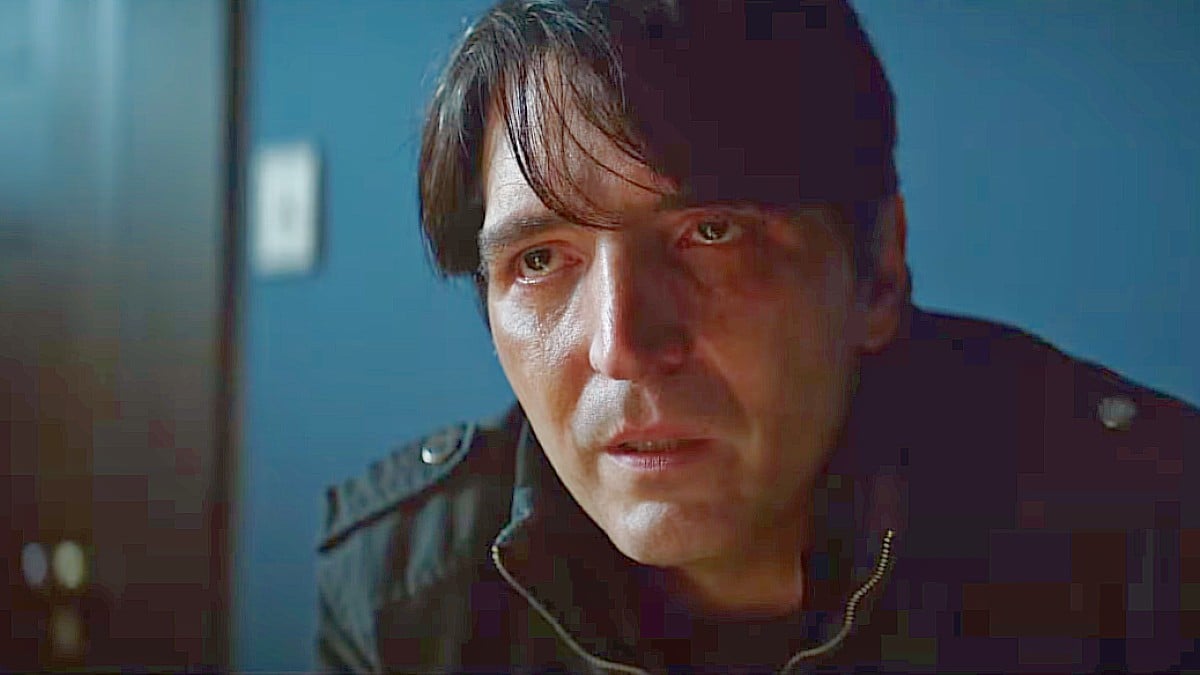
The short story isn’t the longest, so there was plenty of room to expand upon the source material, but it almost feels like an extended epilogue when you compare Lester’s journey in the film to the short story. Was that always your way in, so to speak, to sort of pick up where Stephen King left off and then get creative with what could have happened after the fact?
Rob Savage: I’ve got to give give credit to [Scott] Beck and [Bryan] Woods. I didn’t really work with them on this one. When I came on board, they’d already done a draft of the script that was very different from what we ended up doing. But the thing that they cracked was this idea of taking the short story, and putting that as almost the kind of introduction to this new family and this new story.
I’ve stolen this from them, but it’s a great way to describe it; that our movie is basically like an adaptation of the short story and a sequel to the short story all wrapped into one. And then I worked with Mark Heyman – who should really get a huge, huge amount of credit – because he’s the writer who wrote the movie that ended up on screen.
And he and I found that there was much more we could get out of a family, a family story with kids of different ages and you can attack the lore of The Boogeyman in numerous different ways. It felt like the short story I remember from being a kid, in that it feels very adult. It’s very much about real-world trauma.
The character of Lester Billings has lost his first child to SIDS, and then the other two to this this creature, so it’s fantasy violence born from very real-world trauma. And it felt like while we wanted to speak to that, we also wanted to do the monster under the bed Boogeyman – Boogeyman classic, as it were – and give people that Boogeyman movie, as well as the Stephen King Boogeyman movie.
The best horror movies are always rooted in real human emotions, but did having a creature that literally feeds on suffering and grief make it easier to tap into the characters and the feelings they were going through, because you can always make the argument that the worst way of dealing with anyone is by simply refusing to talk about it.
Rob Savage: That’s it. I think in the best horror stories, it feels like the human drama and the horror are intertwined. I mean, the worst case scenario is that it feels that you do horror scene/drama scene/horror scene/drama scene, you alternate. And I wanted it to feel like the root problem this family’s having, which is a lack of communication.
It’s these characters who can’t speak to each other through their grief that is creating a nesting ground for this creature to grow and to thrive. And it’s a kind of quite simple, stripped-back story, but it’s The Boogeyman. So it wanted to feel almost fable-like, I wanted it to feel simple and classic in the way that we told the story.

There is obviously a budget there that dwarfs Host and DASHCAM, but did it feel like a leap when you were shooting the movie? Obviously there are greater resources available, but at the end of the day the end goal is exactly the same; of scaring as many people shitless as humanly possible.
Rob Savage: Yeah, it’s interesting. It’s amazing. Like, stress kind of clouds everything. So I was equally, if not more, stressed on this movie. I worked harder and pushed myself to the absolute limits of exhaustion on this movie in the same way that I did on those other two.
And when you’re in that cloud of stress, the only thing you’re worried about is – like you say – is making the best movie and giving the audience the best, scariest experience you possibly can. And so while there’s all these amazing resources, it’s still about what ends up onscreen, and what’s the best version of telling the story. Also, having a lot of budget and resources gives you a lot of traps to fall into.
There’s this idea that you can kind of do anything now, you’ve got all these money and resources. And that’s true, I was able to storyboard the whole movie – we built sets exactly to my storyboards – we had a much bigger CG budget, and all this kind of stuff that I wasn’t able to do on the other movies. That being said, those other movies are great, because they’re scrappy, because they’re spontaneous, because they have that energy.
And sometimes, if you can do everything in the world, it becomes very stale and stagnant. And it doesn’t have the kind of life of some of those independent films. And so, it was always about trying to find, trying to not think of Host and DASHCAM as something other, but trying to take what lessons I could from that approach. And, you know, especially the improvisation; we improvised Host and DASHCAM, we had a couple of pages of bullet points on those that we built on.
Whereas here, I thought going into this, “It’s a studio movie, it’s going to be every letter of this script has to be exact, and there’s going to be no wiggle room.” And that wasn’t the case at all. Every day, we were changing things. I was turning up on set a couple of hours before everyone else and wandering around and coming up with new scares. And there was a lot of that kind of chaos – good chaos – that I was able to bring over from those films. So it was a very different beast, but at the same time, there was a lot more room for crossover than I thought.
Speaking of falling into traps: Jump scares are a necessary part of anything like The Boogeyman, but there’s a subversion to a lot of them. Audiences know they’re coming, but they don’t arrive in the way you might expect, so was that a deliberate move on your part to flip the script and given the people exactly what they want, but not in the way they’re used to getting it?
Rob Savage: Yeah. And that’s a good way of putting it. I mean, I love a great jump scare. And I think some of my favorite modern filmmakers, jump scare masters, like James Wan is somebody whose movies and set pieces I’ve watched and I’ve studied, and so much of it is about expectation and rhythm.
And like you say, audiences know that you’re about to get them, and they know a lot of the ways in which you could get them. So it becomes about delivering in a way that they’re not going to expect and playing with the rhythm of the of the scares. James Wan talks about most jump scares, it kind of goes one-two-three, and the jump scare on three, that’s the rhythm.
And he said most of his career is about making the audience wait until eight or nine, and just really stringing them along so they don’t feel like they know the rhythm anymore. And it’s the same thing. I was trying to mix it up in this movie, there are some jump scares that happen on one, and some jump scares that happen on 10. And it’s also just about making the whole movie feel unsafe as horror fans, the moments you can check your phone, or you can go make a cup of tea.
And so we tried… there’s a scene that takes place in the daytime, where a huge scare happens to get people off-guard. Daytime scenes are normally where the audience feels they can relax a little bit. So I love it when a horror movie knows that the audience understands the horror language, and then manages to still get them. That’s a beautiful thing.
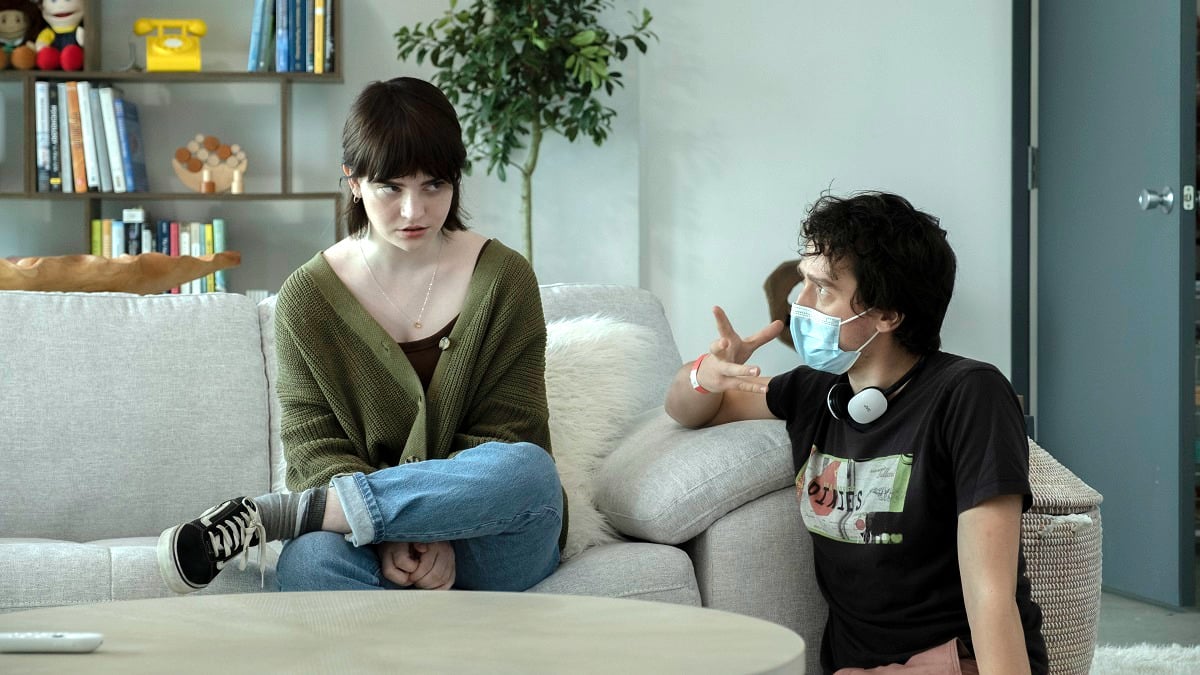
Not to speak ill of a genre that everybody loves, but there are certain setups to scares where you can almost always predict what’s going to happen; whether it’s a creaking floorboard, a door that’s ajar, or the old classic of somebody looking in the mirror with definitely nothing behind them. As a fan and a filmmaker that’s been playing in that sandbox for a while, it’s clear watching your movies that you know that, too, and there’s always a point of doing the opposite of what the “easy” scare would be.
Rob Savage: I think that’s it. And I see a lot of a lot of bad lazy horror being made by people who don’t love the genre. And you can just tell, you can tell that in the very fabric of the movie, they’re not a lover of the genre. They’re not a connoisseur of the genre. And I think that’s hopefully why I get away with being such a jump scare, schlock-meister, is because I think audiences can tell that I love this stuff. And I love the genre. And I know it inside out.
James Wan’s a good one to mention as well, because I know from my perspective watching Malignant for the first time, I could not have foreseen what would happen in the third act no matter how many guesses you gave me.
Rob Savage: It’s a wild one! And he’s always taking big swings, and he’s always building on what he’s done in the horror genre. I mean, The Conjuring 2 is in my Top 10 of all-time, I watch that movie religiously.
There’s plenty of humor in not just The Boogeyman but all of your films, but it feels organic to the story as opposed to zingers being written into the script to lighten the tone. Was creating that naturalism and dynamic between the characters always there on the page or during the rehearsal process, or was it more organic depending on what the mood was like on set at any given time?
Rob Savage: A bit of both. I mean, it’s there in the script. But like you say, sometimes… I mean, it’s the worst thing when you’ve got a joke in the script, and there’s a line, you know, it says, it says, “Everyone laughs”, and you get on set, and there’s just no way that anyone would laugh at that joke. It falls dead on arrival, and it just feels forced and contrived.
And what I always try and do is cast the movie in a way where the actors are going to bring a lot of their own chemistry and a lot of their own personality to the movie, and I think most of the humor in Boogeyman comes from the cast, and comes from their delivery, and comes from just them improvising or riffing on what’s in the scene.
And sometimes it is what’s scripted, but it’s just that they put their own spin on it, and they find a way to imbue it with their own sensibilities Again, that’s one of those things that I took from Host and DASHCAM. So much of what is unique and wonderful about those movies is the cast and the personality that they bring.
And it’s another tool that you can use against the audience, because there’s a moment where the laughter stops, and then suddenly the audience feels it, they feel that tension, they start to enter into the proceedings. And that was a big weapon that we used on Host, which starts with these real friends who are really cracking each other up. And then as soon as that atmosphere turns icy, the audience can really feel the shift.
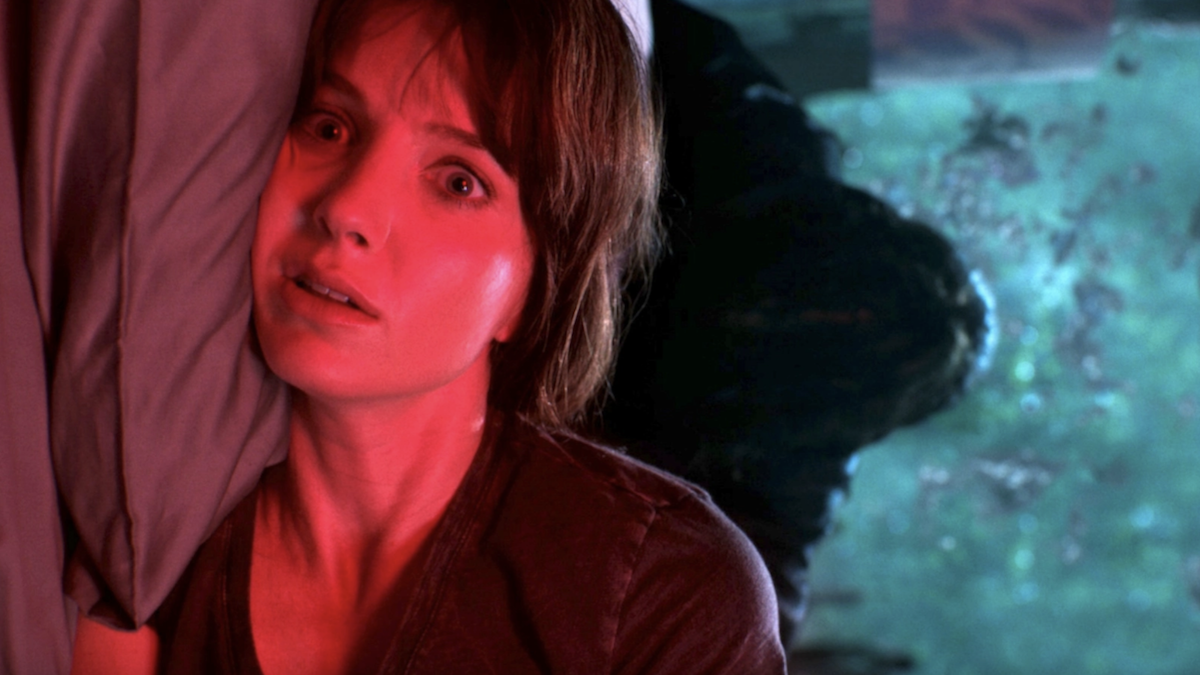
You’ve made three back-to-back horror movies, and you’ve obviously got a deep love for telling scary stories, but are there any genres you haven’t dipped your toes into yet that are sitting at the top of your list that you want to tackle next?
Rob Savage: Maybe not next. I mean, I’m quite happy swimming around in horror for a while. But I’ve always wanted to do a great gritty, grounded sci-fi movie, kind of in the vein of Children of Men. I don’t think I’m the kind of guy who’s going to do spaceship movies and anything too slick, but I’d love to tell a kind of boots on the ground, gritty sci-fi movie.
And then also, I’m interested in developing a couple of things in the vein of like an early kind of Christopher Nolan twisty thriller, I think. I think anything that’s got a genre engine tends to excite me, whether that’s sci-fi or thriller or horror. Okay, I can’t see myself doing a straight drama, or definitely not a straight comedy. That’d be the scariest thing I could ever imagine!
You could go full James Wan and direct Fast & Furious 87.
Rob Savage: Yeah, maybe? I don’t know where they go, they’ve already been to space. Where would they go?
Somebody had a great idea, because they’re both Universal, to do a Jurassic Park crossover and have them fight dinosaurs.
Rob Savage: I heard about that, and I think that’s excellent! And I think they should definitely do that. 100 percent.
I also want to task about your t-shirt [Savage is wearing a white t-shirt with “Lynne Ramsay” emblazoned across it in bold black letters], with the name of a good Glasgow native on it.
Rob Savage: She’s, well, Lynne Ramsay is the greatest living director. It’s just a fact. It’s a scientific fact. So I’m just wearing it to remind people of that. She’s, yeah, she’s… how many movies she made? Five. She’s five-for-five. You know, it’s like five movies, five masterpieces. And she’s one of those filmmakers where it feels like she’s really, in every movie, trying to push at the boundary of what cinema can do. It feels like she’s restless, and she’s excited by the medium, and she’s just a crusader. She’s incredible.
So now I need to know what your reaction would be if you saw Lynne Ramsay wearing a “ROB SAVAGE” t-shirt.
Rob Savage: I’d die. I’d melt, then turn into a puddle on the floor.
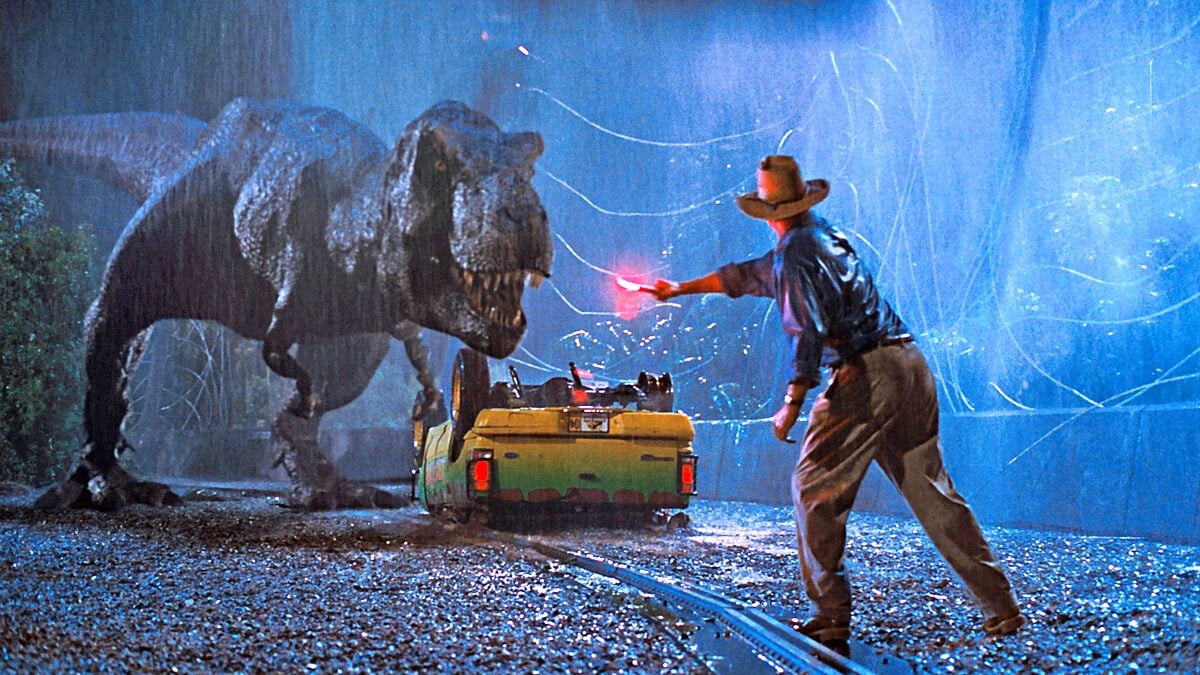
If you could make any project of your choosing – as in, whatever you want for however much it needs to cost – what would it be and why would it be that?
Rob Savage: Oh, god. You know, if I had unlimited resources, and this isn’t just because we were talking about Fast & Furious, but like this would fulfill a childhood dream. Because before I picked up a camera, I wanted to be a paleontologist and study dinosaurs. You know, like every kid who watched Jurassic Park. So I think just doing a big prehistoric dinosaur movie would be the dream.
There’s a gap in the market because apart from Jurassic Park, it would be fair to say that most of them haven’t been phenomenal.
Rob Savage: It cornered the market. I mean, it’s that pesky Spielberg, isn’t it? He did it with sharks. There’s been actually, to be fair, there’s been a few great shark movies, but nothing that comes close. I mean, probably the second-best shark movie ever made is Jaws 2. And then, you know, 47 Meters Down is pretty good, The Shallows is pretty good. But you’d be hard pressed to find another dinosaur movie that comes close.
It’s definitely a generational thing, because I saw Jurassic Park in the cinema when I was maybe three and a half, and it’s still one of my favorite movies. I could watch it right now, and feel exactly the same.
Rob Savage: It still feels like the epitome of cinema, watching some of those scenes on the big screen. I feel like that kid again watching it for the first time.
Well I look forward to the day when your $200 million, three-hour dinosaur movie finally comes to fruition.
Rob Savage: Well, you know, you could do a kind of like, properly scary dinosaur movie. I know J.A. Bayona did the kind of “dinosaur haunted house movie” entry into the franchise, but something that’s kind of big and survivalist, that could be kind of interesting. Like, more of a definitively horror take.
Dinosaur horror? I’m already sold, so please ensure that happens eventually.
That’s my career goal now!
The Boogeyman is currently playing in theaters.

